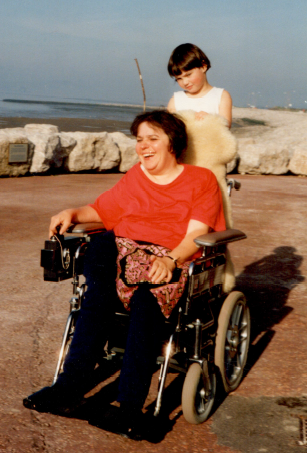Last week I said that when I’m ninety-nine I’d like to do something as impressive as Captain Tom Moore. That’s if I can live an active life until then.
This week’s COVID furore about ‘do not resuscitate’ or DNR orders – highlights the common belief that active lives cannot be led by older or disabled people, and clinical decisions have been made based on skewed assumptions of quality of life.
In Monty Python and the Holy Grail (1975), there’s a scene that’s become known as the ‘Not Dead Yet’ sketch (below) in which Eric Idle, accompanied by a barrow-pusher collecting plague bodies, shouts ‘Bring out your dead’. A man approaches with a body slung over his shoulder, but the body repeatedly protests, ‘I’m not dead’, and ‘I’m getting better.’ When the man asks Idle ‘Isn’t there something you can do?’ Idle clubs the ‘body’ on his head and he’s loaded, inert, onto the cart. This scene encapsulates centuries-old attitudes towards older and disabled people which have now been thrown into sharp relief by the Covid epidemic.
It’s not just a case of how nice or nasty our society is towards a disadvantaged minority during a time of crisis. Whereas over the last fifty years the debate on equality has advanced attitudes towards people of colour, women and other minorities, disabled people’s hard-won progress is in danger of falling backwards into a pit which threatens to extinguish their precarious existence.
Baroness Jane Campbell, 61, speaking at the London School of Economics last year, summed it up in this article, and saying within it that ‘It began to feel like there was only a very short walk from being one of the “vulnerables” to the chilling club of the “expendables”.’ With two thirds of Covid deaths being disabled people, she said the term “vulnerable people” conjured up ‘weakness, victimhood and a cry for others to take responsibility for us’, rather than using words such as “human rights”, “equality” and “service entitlement”.
If anyone ever wrote a manifesto that challenges this belief that disabled people are passive, it’s Sue Napolitano in her poem ‘My Place’:
I don't want to live in bungalow land, On the outer edges of the urban sprawl, In a place designed for people-like-us, Kept safely separate away from it all. I want to live in the pulse-hot thick-of-it, Where the nights jive, where the streets hum, Amongst people and politics, struggles and upheaval, I’m a dangerous woman, and my time has come.
Sue refused to be restricted by childhood polio and battled all her life against professionals and do-gooders who often decided what she could and couldn’t do. Although she lost a battle against cancer twenty-five years ago, she made her mark as an activist and poet. For disability campaigners, fighting for control of their own lives is literally a life and death issue.
It’s not surprising that Baroness Campbell, who has herself survived the imposition of a DNR notice, is a prime mover of the ‘Not Dead Yet’ campaign. She personifies the disabled person whose hold on life should not be fragile. Given a year to live at birth, but consistently outliving estimates of her life expectancy, she is a powerful member of our country’s legislature, vocal in her opposition to “assisted suicide”. Following their survey of members, the BMA are planning to discuss the issue in June this year and their conclusions are likely to be influential. But Baroness Campbell is quite clear:
‘Most people recognise that an individual act of “assisted dying” might be acceptable in exceptional situations. [But an] “assisted dying” law would, in effect, be creating a routine process.’
Disabled people have succeeded (often against the odds) to live active lives which shaped my world. Scientists like Stephen Hawking and naturalist Chris Packham, writers like Audre Lorde and children’s novelist Rosemary Sutcliff, musicians like Stevie Wonder, artists like Frida Kahlo, actors like Liz Carr (Silent Witness) and Nabil Shaban (Dr Who) and politicians like Theodore Roosevelt and David Blunkett.
And my own partner, Sue Napolitano, co-mother of our child, who died 25 years ago this week.




Yes I agree that the official attitude of expendable towards older and disabled people needs to be challenged strongly and resisted.
Thanks Susan. This past year has been a real backward step; I hope we’ll be able to reverse it.